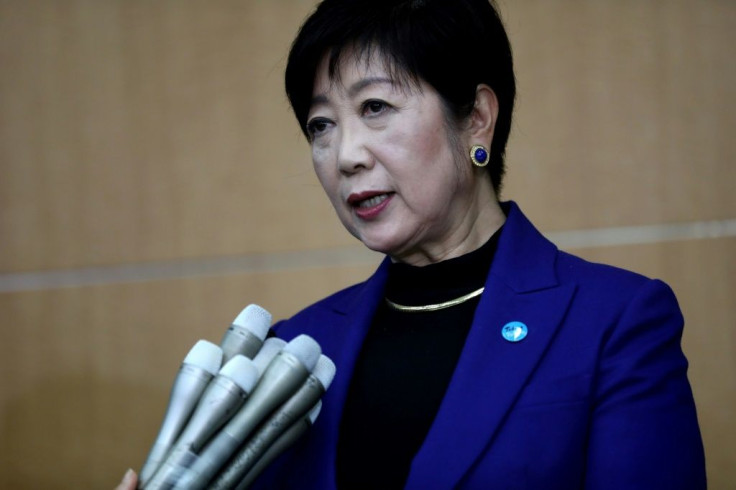Defiant Governor Says Olympic Marathon Should Stay In Tokyo

Tokyo's governor insisted Wednesday she still wants to see the Olympic marathon held in the capital next year, despite plans to move the event to northern Japan over heat concerns.
The location of the marathon and race-walking events in next year's 2020 Summer Games has become a major sticking point between Tokyo officials and the International Olympics Committee (IOC).
The body said earlier this month it would propose shifting the events to Sapporo in northern Japan after disastrous scenes at the Doha world championships where dozens of athletes needed medical attention in hot and humid conditions.
Last week, the chair of the IOC's coordination commission John Coates, made clear the decision to move the events was final, but Tokyo officials have not backed down.
"Let me clearly speak as the leader of the host city and the representative of the people of Tokyo, it is my wish for marathon and race walk to be held in Tokyo," Governor Yuriko Koike said at the start of a three-day meeting between IOC officials, Tokyo government and 2020 organisers.
Koike noted IOC chief Thomas Bach after an IOC executive meeting on October 3 said he had never seen a host city so well prepared.
The plan to move the events came two weeks later and was a "tremendous shock" to Tokyo, she said.
"This proposal was made with no explanation at all to the Tokyo government or the Tokyo metropolitan assembly until the last moment."
She said angry local residents had called the local government asking about the decision.
Public anger
There have been reports suggesting Tokyo wants to see the events start at 5am, or even earlier, as a way to keep them in the city.
But Coates again on Wednesday described the move as a done deal.
"This was a decision that was taken quickly. It was a decision that was taken as consequences of what we saw in Doha," he said.
Coates said he was in Tokyo "to explain to her (Koike) the reasons, the detailed reasons for those changes."
"We absolutely recognise and we are so very thankful to the people of Tokyo," he added.
Speaking to reporters afterwards Koike said "mutual trust" was indispensable for a successful Games, and said there were "no plans to spend Tokyo taxpayer money for another venue".
Part of the anger over the decision appears to stem from the IOC's abrupt announcement, which came without prior consultation with either Tokyo or Sapporo officials.
The marathon is generally considered one of the key events of the Olympics, with its route carefully designed to show off landmarks in the host city.
It is also one of the few opportunities for ordinary citizens to see an Olympic event for free, and is seen as an important way to drive engagement with the Games.
The proposed move has thrown up various questions, including who will bear the additional costs of the decision.
Koike's party Tomin First, the biggest force in the Tokyo Assembly, estimates the venue move will cost an extra 34 billion yen ($315 million), including expenses to build temporary facilities and lay mass-media transmission lines.
Local media has said Tokyo organisers plan to demand the IOC shoulder those extra expenses.
© Copyright AFP 2024. All rights reserved.











